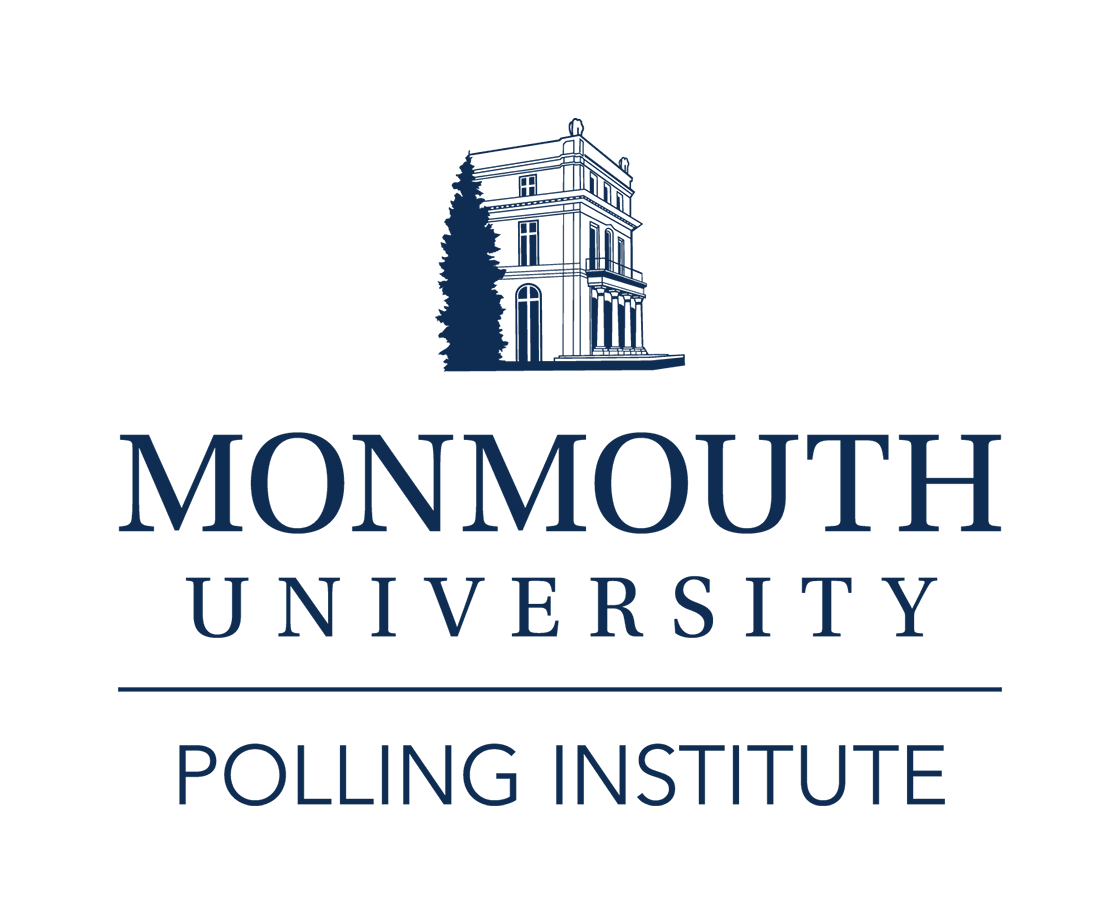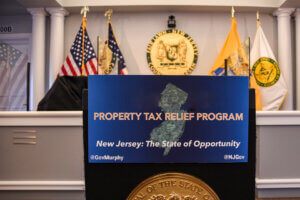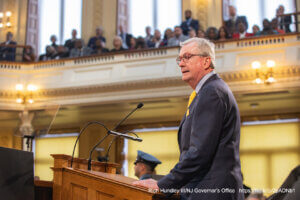Introduction
New Jersey has a reputation for late deciding electorates, but the polls in this year’s race for governor have actually shown slightly smaller than usual levels of indecision in their results. At the same time, they have also shown higher levels of “soft” support for the candidates – voters who make a choice but say they may change their mind before election day.
Our polling indicates that this volatility is not a product of voters trying to choose between two different, but equally attractive options. Rather, voters are unhappy with the incumbent’s record over the past four years, but they are not satisfied with what the challenger has offered as an alternative.
A week before Election Day, the Monmouth University Polling Institute gathered a small group of undecided voters to discuss the issues important to them, impressions of how the campaigns have addressed those issues, and what they are looking for to help them make their final decision. In a close election, these undecided voters will make the difference.
The focus group was held on October 27th, 2009 in Edison, New Jersey, with 10 registered voters who say they will definitely vote in the upcoming gubernatorial election, but were undecided or only leaning toward a candidate.
[Note: The focus group findings presented here reflect the perceptions and attitudes of the undecided voters who participated in the group. They are not necessarily statistically representative of the entire undecided electorate in New Jersey. However, they are suggestive of the types of concerns that other voters may have.]
The Issues
The top issues on these voters’ minds have to do with economic security, either for themselves or someone in their family. While most say they are hopeful for the future, that hope is tampered by expectations that the future may not be as bright as they would have thought just a few years ago. Many say New Jersey’s cost of living will drive them out of the state by the time they retire.
In terms of the governor’s race, these concerns translate to seeing jobs and taxes as the most important issues in this election, with health care and government spending also garnering mentions. These voters are looking for the next administration to develop policies that will spur the state’s job growth and reduce their tax burden, especially – but not limited to – property taxes.
The voters in this group were split on whether the outcome of this year’s election would have an impact on their own lives. A few called the election “critical” while most said it was not. These voters said the election should be important to their lives, but they have low expectations that the situation will change regardless of who wins on November 3 rd .
These voters overwhelmingly felt that politicians are out of touch with their constituencies and are insulated and unapproachable. They put this down to two factors. First, they feel that self-interest and partisanship has replaced a desire to serve the public good. David from Edison said: “If one guy’s a Democrat and the other guy’s a Republican, he wants you to fail strictly because of the party basis… What happened to the politicians serving the people and doing what’s right for their constituents?”
Second, most politicians are wealthier than average and simply can’t understand the financial pressures that middle class families are under. As Jay from Monroe put it, “Corzine [has] an income level that’s out of the majority of people’s reach, that he can spend so much on a campaign that it doesn’t even bother him. You’ve got Christie who’s been sheltered by working as a bureaucrat and yet according to him, he spends $36,000 on real estate taxes…If he can afford $36,000 what’s he complaining about. And you’ve got Daggett who’s also spending $18 to $20,000 in real estate taxes…They have no idea of reality.”
The Candidates
Voters had few kind words to say about either of the two major party candidates, although they give the leading independent the benefit of the doubt.
Words to describe Democratic incumbent Jon Corzine, were largely negative, including that he is “too liberal,” “rich,” “crooked,” and “incompetent.” A couple of voters offered more positive terms of “capable” and “honest.”
Words to describe Republican challenger Chris Christie were more positive – “tough,” “aggressive,” “ambitious.” However, these were largely related to his reputation as U.S. Attorney, suggesting that those qualities do not necessarily carry over to their evaluations of his candidacy for governor. “Frustrating” was how one participant described the Republican nominee.
Independent Chris Daggett was described largely as “unknown,” but a few participants held prospective evaluations, such as “has potential” and “could be good.”
In one of the most telling exchanges of the focus group, participants were asked to fit each of the candidates into their family as one of their relatives. The group seemed to actually flinch at the suggestion. A couple described Corzine as “the rich uncle who you don’t see very often,” with one adding “but has you in his will, hopefully.” A few described Christie in terms of being an in-law, with one describing him as “the brother-in-law that just kind of talks too much.” But Rachel from Eatontown summed up the group sentiment, saying, “I really can’t see any of these people in my family.”
Only Daggett was seen as someone who might fit into these voters’ families, mainly because he seems to be a nice, normal guy – perhaps as someone “your cousin just started dating.”
The Campaign
These voters unanimously characterized the governor’s race as nasty, negative, and lacking in specific proposals about what these candidates will do to improve New Jerseyans’ lives. As Lauren from Belleville said, “I feel a little frustrated this time around…I don’t feel like I’ve been informed.”
The tone of this race seemed to confirm the negative views these voters express about politicians and politics in general. The gubernatorial candidates are seen as more interested in undermining each other than in discussing specific ideas about how to help New Jersey families.
The group was shown a sampling of television ads that have run during the campaign. The first was a Corzine ad called “Got It.” This ad aired early in the campaign season and is a positive ad focusing on the incumbent’s accomplishments. None of the voters in this group recall ever seeing the ad. However, a number said that if that ad ran on television now, they might reconsider Corzine as an option. One person described this ad as “not annoying” and preferable to the negative ads that have been dominating the airwaves recently.
Voters were also shown a positive Christie ad “Fiercely Independent.” This was also an early campaign ad. Some voters did recall having seen this one before, but not recently. The group had a generally positive reaction to this ad. However, Christie’s “Exactly What I’ll Do” ad was considered to be less effective, because the “specifics” mentioned by candidate in this ad led to the question “How?” from most voters in the group.
Perhaps the most controversial ad of this campaign was a Corzine spot saying that Christie “threw his weight around” to get out of traffic tickets and other transgressions. This ad sparked a public discussion of whether the Republican’s physical appearance was being used as part of the Democrat’s attack strategy. Most voters in this group had seen the ad before, but few say they interpreted the weight comment as relating to Christie’s physical appearance.
While it’s impossible to tell whether this ad had a subliminal effect on lowering these voters’ estimation of Christie, their reaction at seeing it in the group context was interesting. They treated it almost as noise, suggesting that the attack ads have ultimately melded into one continuous drone of negativity.
Endorsement ads – President Barack Obama for Corzine and former Governor Tom Kean for Christie – had no effect on swaying this group in their ultimate vote decision.
The Vote Choice
These voters claim that this is the most difficult election choice they have ever faced. Nearly all said that Jon Corzine has not done a good enough job to deserve reelection. They simply have not heard enough from Chris Christie to cast their lot with him.
Five have absolutely ruled out Corzine as a choice. One has ruled out Christie and two have ruled out Daggett. Other than that, these voters appear up for grabs.
In fact, 6 of the 10 participants indicated that if Chris Daggett was not in the race, they would have already decided to vote for Christie. However, they are entertaining the idea of supporting Daggett largely for two reasons. Some voters in this group feel that he has been more specific about his plans than the other candidates. Another reason for supporting Daggett is that if an independent wins, it would send a strong message to the two major parties that they shouldn’t take New Jersey voters for granted.
At the end of the day, though, the final decision may rest on whether they believe Daggett has a shot of winning. As Frank from Mount Laurel said, “I think what I might do on Monday is dig for the latest polls … If he’s in the 20’s or he’s close, I’ll vote for him.”
The polls are now showing the “pure” undecided vote to be about 5% or less of all likely voters. This may seem like a small number of voters, but their choice could be decisive in a close race. Some observers claim that in an election with an incumbent, the undecided vote will break largely for the challenger, perhaps by a margin of 2 to 1 or greater. Clearly, this group of undecided voters is ready to go for a challenger. The question is which one.
Background on the focus group:
All voters in the group had participated in a prior Monmouth University poll.
County: Middlesex (2), Monmouth (3), Burlington (2), Union (1), Essex (1), Morris (1)
Gender: Male (6), Female (4)
Age: 18-39 (1), 40-49 (3), 50-59 (2), 60-69 (3), 70+ (1)
Race: All participants were white
Party affiliation: Democrat (2), Republican (3), Independent (4), Other (1)
Vote inclination before: Undecided (7), Lean Corzine (1), Lean Christie (1), Lean Daggett (1)
Vote inclination after: Undecided (3), Lean Corzine (1), Lean Christie (1), Lean Daggett (5)
The group was moderated by Patrick Murray, director of the Monmouth University Polling Institute




